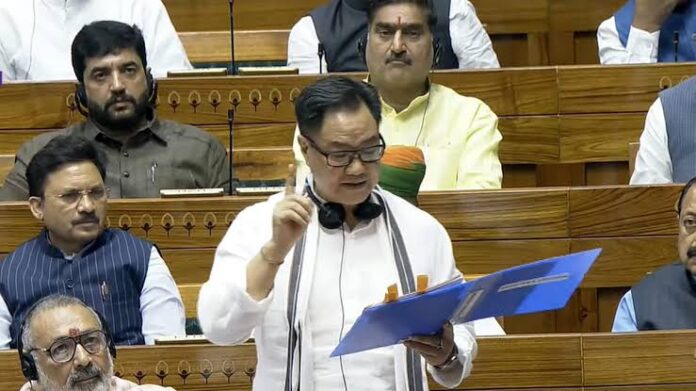Chennai (Tamil Nadu), March 26: Reacting to the nationwide protests led by the All India Muslim Personal Law Board (AIMPLB) against the Waqf Amendment Bill, Bharatiya Janata Party (BJP) leader CR Kesavan on Wednesday defended the bill, claiming it will empower the underprivileged sections of the Muslim community. In a self-made video, Kesavan stated that the Waqf Amendment Bill is aimed at addressing the shortcomings of the 1995 Waqf Act, which he described as “repressive and regressive.”
Kesavan emphasized that the previous Waqf Act had severely impacted disadvantaged Muslims, particularly children, the poor, widows, and women, by enabling exploitation of Waqf properties meant for these communities. He said, “The Congress government’s 1995 Waqf Act greatly victimizes and discriminates against the disadvantaged sections of the Muslim community. This amendment will empower them.”
Criticizing the Congress Party’s 2013 amendment to the Waqf Act, Kesavan accused the party of promoting “dangerous political appeasement” and granting unchecked power to vested interests who exploited Waqf assets for personal gain.
Meanwhile, BJP MP Jagdambika Pal, the chairperson of the Joint Parliamentary Committee (JPC), also dismissed the protests against the bill, suggesting that the AIMPLB was attempting to create confusion among minorities. “The government is trying to amend the Waqf law so that it can benefit the poor, but the opposition is already protesting without even seeing the bill,” Pal said, calling out the opposition for trying to divide people and create confusion among Muslims. He stressed that the bill would ultimately benefit the nation and its citizens.
On the other hand, AIMPLB spokesperson Syed Qasim Rasool Ilyas sharply criticized the central government’s move, accusing it of having a “communal intention.” He claimed the bill was designed to seize Waqf properties and mislead the public.
The Waqf (Amendment) Bill, 2024, seeks to address challenges faced by the community, including digitization of Waqf properties, enhanced audits, increased transparency, and legal mechanisms to reclaim illegally occupied properties. The bill is designed to ensure that Waqf properties are used for their intended purposes, benefiting the Muslim community and the country at large.


